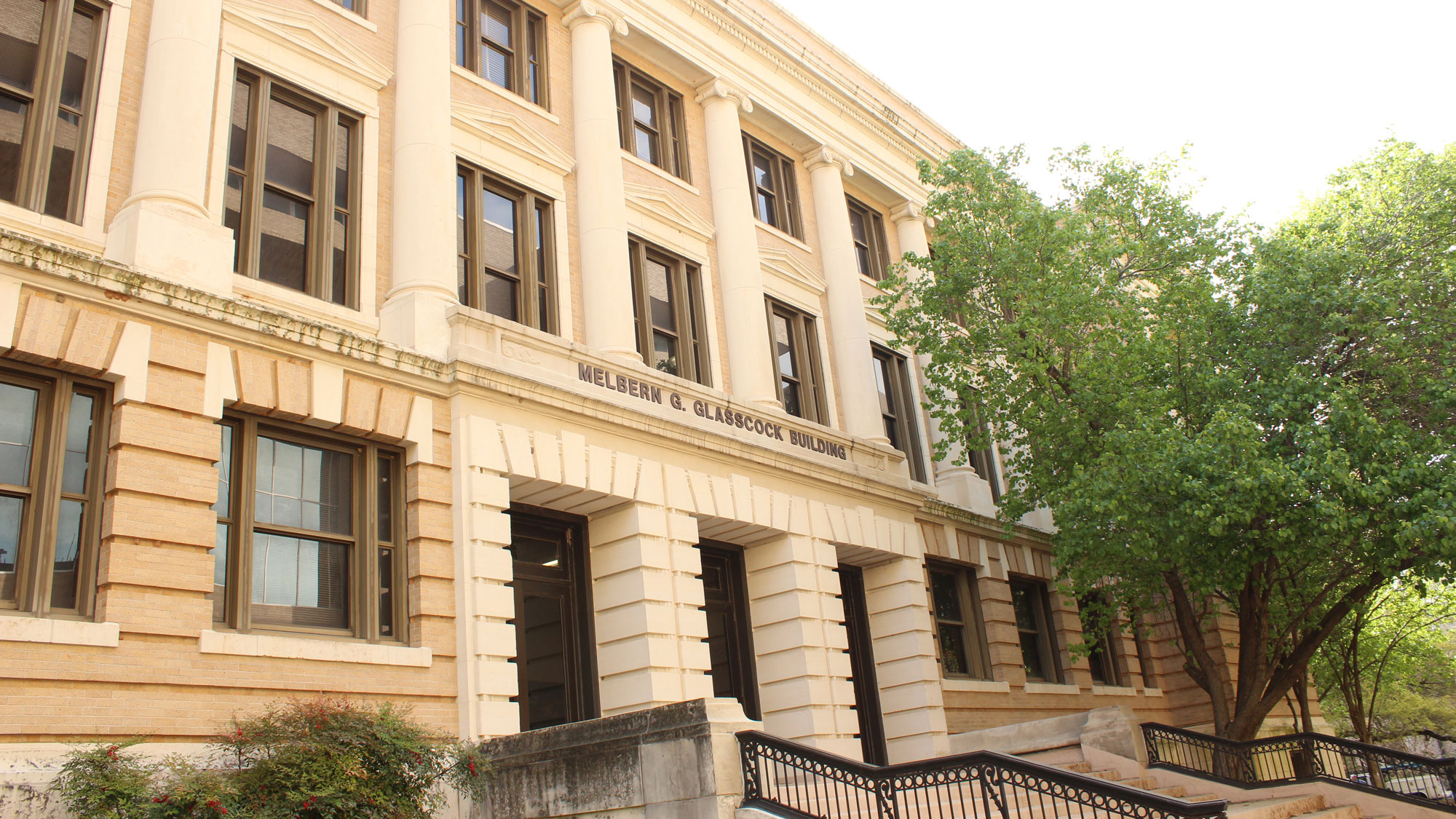
For STEM students, research opportunities tend to be baked into the degree program; however, for those in the humanities, the opportunity to do research at the undergraduate level can be harder to come by. At Texas A&M University, a unique program in the College of Arts and Sciences seeks to remedy that.
The Glasscock Undergraduate Summer Scholars Program (UGSS) pairs top students with expert faculty in humanities for an intensive research experience that benefits students, faculty and the world. Now in its 13th year, UGSS features its largest cohort to date, with five faculty directors and 15 undergraduate students generating new research on topics as diverse as the intersection of labor and technology, to the history of racial conflicts and its reckoning on the Texas A&M campus. Students work closely with faculty directors through a 40-hour, three-week class period in the summer, followed by a year of mentoring as students complete an undergraduate thesis.
Participating students sharpen their research and writing skills, positioning them for competitive applications for future graduate studies. Completing an undergraduate thesis also allows them to earn university honors at graduation. In spring 2025, the program will host its first research symposium to showcase the current cohort’s accomplishments.
“For faculty, this is an ideal scenario — a topic they are passionate about and a student experience that reinvigorates their commitment to teaching,” said Dr. Jessica Ray Herzogenrath, an instructional associate professor in the Department of History and associate director of the Melbern G. Glasscock Center for Humanities Research.
Faculty use the summer seminar to develop content for new courses or future publications. Students receive individual attention and are able to explore ideas at a new depth while relating to faculty members as collaborators and co-creators of knowledge.
“The range of faculty and students that participate is impressive,” said Herzogenrath, noting that new faculty as well as tenured, decorated scholars submit proposals for UGSS.
Students in the program, which is offered in collaboration with LAUNCH: Undergraduate Research and the University Writing Center, come from a broad distribution of the humanities and beyond. Participating in UGSS allows students to see their field, whether it’s architecture or artificial intelligence (AI), through the lens of humanities, creating better-equipped professional citizens.
Topics explored in the 2024 UGSS varied. While some seminars looked to the past and others the future, each project had resonance for students seeking insights about their world in the present.
2024-25 UGSS Cohort
AppWorlds: New Human Labor in Late Capitalism
Faculty Director: Dr. Sergio Lemus, Assistant Professor, Department of Anthropology
Summer Scholars: MyKaela Johnston ’26 and Sidney Uy Tesy ’27, Department of Philosophy; Liceth Meza ‘24, Department of History and Department of Political Science, The Bush School of Government and Public Service
Lemus and his scholars examined how digital technology has transformed the production, distribution and consumption of goods and services. Through case studies on everything from DoorDash, to Tinder, to ChatGPT, students delved into the effects of advancing technology on labor markets, job structures and social organization. Ongoing student research touches on AI and human labor, dating apps and gender performance as well as labor organization and social media.
“Projects like this are possible by being here at Texas A&M University under the Glasscock Center’s vision of how intensive research practices can flourish,” Lemus said.
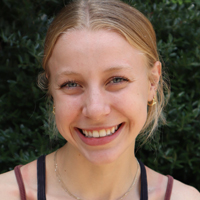
Johnston, a junior in Texas A&M Philosophy’s Society, Ethics and Law program, chose to participate in the project because she wanted research experience and needed to complete her honors requirement. She also said this topic is something she’s passionate about.
“As a participant in the program, I have worked with Dr. Lemus on examining digital capitalism and the ways in which digital technology has altered our economic and social systems,” she said. “The purpose of our focus on emerging digital technologies and their impacts on the labor market, job structures and social organization was to gain an understanding on how historical institutions are operating in our new reality.”
Civil Rights and Racial Justice in the Age of George Floyd
Faculty Director: Dr. Albert Broussard, Professor, Department of History
Summer Scholars: Alexis Brasher ‘26, Department of History; Addison Silver ‘25, Department of Sociology; Nicholas Jensen ‘25, Department of Global Languages & Cultures
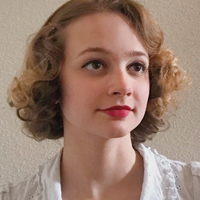
Cornerstone Faculty Fellow Broussard’s students considered the Civil Rights effort in the U.S. in the 1950s and ’60s, including what it achieved and where it fell short. They also explored current conversations of justice and equality for Black people in America, from affirmative action to aggressive policing of Black communities, and what is allowed to be taught in public schools about these issues.
“If concepts like that are studied by young people it can aid in the understanding of that concept, which can aid in bringing forth solutions in upcoming generations,” said Brasher, a junior history major. “I've come to understand the modern civil rights movements more than I did before. I have a different understanding of The War on Drugs and police brutality and how they have negatively impacted millions of people.”
Cultures of the U.S. Civil War
Faculty Director: Dr. Ira Dworkin, Associate Professor, Department of English
Summer Scholars: Mario Martinez Alfaro ‘26 and Stella Chung ‘25, Department of History; Tatum Sommer ‘25, Department of English
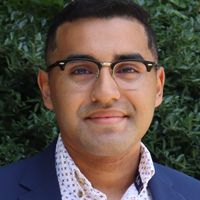
In this project, Dworkin explored the American conflict beyond the battlefield. Students considered “the voices and works of women, children, disabled people, African Americans, and others who were, at different times, excluded from military service.”
The topic is tied to Dworkin’s current book project on the relationship of African intellectual and political culture to Black knowledge production in North America during the era.
“I decided to join this program because I thought the research topic of the cultures of the Civil War was an interesting concept,” said Alfaro, a junior history major. “Instead of looking at battles, speeches and decisions, this focused on the cultural aspects like photography, religion and citizenship. I believed this would allow me to voice my opinion in the scholarly conversation.”
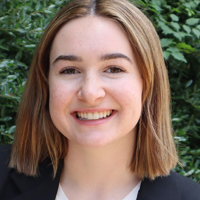
Sommer, a senior English major, said she would encourage other undergraduate students to participate in the program as well.
“The insight of my peers and I is vital to contribute unique and updated scholarship on civil war,” she said. “We are exploring concepts like the idea of citizenship, the impact of photography on public perception, and religion in the civil war…The program surrounds you with a team of people cheering you on.”
Exploring Environmental Humanities in the Age of Mass Extinction: History, Literature, Arts, and Sciences of Climate Change
Faculty Director: Dr. Side Emre, Associate Professor, Department of History
Summer Scholars: Luke Beaty ‘25, Department of Political Science, The Bush School of Government and Public Service; Joseph Dib ‘25, Department of Biology; and Chetana Kuchibhotla ‘28, Department of Bioenvironmental Sciences, College of Agriculture and Life Sciences
Emre challenged students to explore the web of relationships between disciplines. Uniquely, the course focused not on standard assignments but on “experiential and creative projects that connect students directly with their personal experiences of nature.”
Emre’s objective was for students to cultivate a greater understanding of how environmental, socio-political, cultural and spiritual systems intersect.
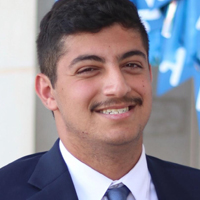
Dib, a senior biology major who plans to attend medical school after graduation, said he was inspired to participate in the program because of Emre.
“She presented me with the opportunity to further my education in a field I wanted to gain a deeper understanding of,” he said. “The avenue we took on studying climate change was unique in that it came from a humanities approach and how the problem affects society from a sociological perspective.”
Dib encourages fellow undergraduate students to participate in the program and go into it receptive to opposing viewpoints.
“My biggest takeaway was that it’s OK to have differing opinions,” he said. “But at the end of the day, the most important thing is to be respectful and keep an open mind on anything being discussed.”
Indigenous Peoples and Land-Grant Universities: Opportunities and Obligations
Faculty Directory: Dr. Heather Thakar, Assistant Professor, Department of Anthropology
Summer Scholars: Parker Burris ‘24, Aarya Newasekar ‘26 and Megan Williams ‘25, Department of Anthropology
Thakar and her students explored the question of Native wealth and the university, from its founding to the present. This included lands expropriated from indigenous people to create land-grant universities; the relationship of the university and indigenous students, faculty and staff; and items of Native origin held by the university research collection.
Thakar challenged students to seek projects that contribute to the successful repatriation of Native materials held by Texas A&M to the appropriate descendant communities.
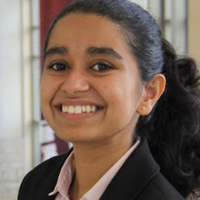
Newasekar, a junior anthropology and classics double-major, said she plans to attend law school and pursue law related to intellectual property and cultural heritage, so this project was of particular interest to her.
“I am currently studying US federal laws surrounding cultural heritage…because I want to find out how and why the legal position of Indigenous peoples changed over time,” she said. “I think that this project will contribute to the overall understanding that the idea of democracy is not a monolith, but rather a living, breathing one that transforms as people and societies change.
"Furthermore, by tying this understanding of democracy to US federal laws regarding cultural heritage and antiquities, I hope to show the effects of treating a population as part of ‘the people’ of a democracy only in name, but not really in practice.”
Experience Undergraduate Research
Students in the College of Arts and Sciences at Texas A&M University work on the frontiers of discovery, even as undergraduates. As a vital component of this high-impact experience, they partner with faculty, graduate students and fellow researchers to solve cutting-edge problems, publish results in leading journals, and gain technical and critical-thinking skills that prepare them for their future careers. Learn more about undergraduate research opportunities in ArtSci.

